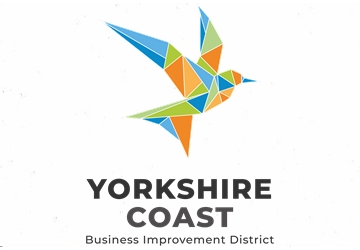Cruel ‘romance fraudsters’ cost victims in North Yorkshire and York more than £2.5million last year, according to new figures.
There were 115 reports of romance fraud in the North Yorkshire Police area in the financial year 2024/25, with a total loss to victims of £2,746,939.
That compares to a total of 9,449 reports nationwide, and a total national loss more than £100,000,000, over the same period.
Throughout this week, as part of a national campaign, North Yorkshire Police will be sharing ‘stay safe’ advice on its social media channels, particularly targeting those who are most likely to fall victim to romance fraud.
Breaking outdated stereotypes, the national statistics reveal that – for the second consecutive year – male victims slightly outnumber female victims, challenging the misconception that romance fraud primarily targets elderly women. However, while more men reported cases, female victims tended to lose larger sums of money. This is likely due to the prolonged engagement with fraudsters, who manipulate emotions over extended periods.
The 50-59 age group experienced the highest financial losses. This demographic is particularly vulnerable as they often have greater financial resources, are still in the workforce, and may be experiencing personal life changes such as divorce, separation, or the loss of a partner, making them prime targets for fraudsters.
DI Janine Mitchell, Head of Financial Investigation at North Yorkshire Police, said: “Romance fraud isn’t just a financial crime – it can have a severe psychological impact leaving lasting emotional scars.
“Despite this, stigma still surrounds romance fraud victims, often driven by misconceptions that they are foolish or lack judgment. In reality, criminals use sophisticated tactics to manipulate emotions and gain trust, making anyone vulnerable.
“We want to remind everyone that romance fraud can happen to anyone, regardless of gender or background. If something doesn’t feel right in an online relationship, take a step back, verify identities, and seek advice. Speaking up can not only protect yourself, but also help prevent others from falling victim and bring those responsible to justice.”
A spokesperson for the Yorkshire & Humber Regional Fraud Protect Team added: “Romance fraud is a deeply personal and devastating crime that goes far beyond financial loss – it exploits trust, emotion and human vulnerability. Victims of romance fraud are often left feeling ashamed, isolated and emotionally betrayed which can make it even harder to come forward.
“We want to make one thing clear, there is no shame in reporting this type of scam: these scammers are highly manipulative, calculated and professional.”
Romance fraud isn’t just about losing money – it’s about emotional betrayal, psychological harm, and the erosion of trust. North Yorkshire Police urges the public to question suspicious relationships, verify identities, and protect both their hearts and their bank accounts.
How to stay safe from romance fraudsters:
- If you have met someone via a dating app, stay within the messaging function of the application. Don’t feel pressured to hand over your mobile number and move the conversation over to SMS or a messaging platform like WhatsApp or Telegram.
- Be suspicious of any requests for money from someone you have never met in person.
- Be cautious about how much personal information you are sharing online and who you are sharing information with.
- Speak to your family or friends to get advice and perspective. Fraudsters will subtly isolate you for their own purposes.
- Profile photos may not be genuine. Performing a reverse image search can find photos that have been taken from somewhere, or someone, else.
No matter how long you’ve been speaking to someone online and how much you think you trust them, if you have not met them in person, it’s important that you do not:
- send them any money, even in the form of gift cards;
- allow them access to your bank account;
- transfer money on their behalf;
- take a loan out for them;
- provide copies of your personal documents, such as passports or driving licenses;
- invest your own money on their behalf or on their advice;
- purchase and send the codes on gift cards; or
- agree to receive and/or send parcels on their behalf (laptops, mobile phones etc.)






























